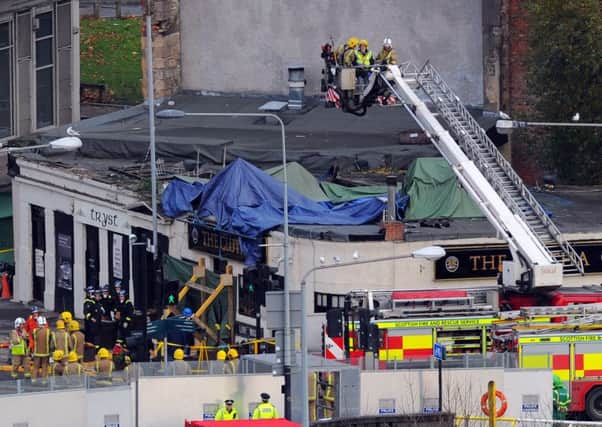Inquiry told of defects to Clutha crash aircraft


A technical log sector record for the G-SPAO Eurocopter EC135 helicopter noted defects with its fuel contents’ indications on 8 July 2013, with both overreadings and underreadings of the fuel on board.
The inquiry yesterday heard from Bryan Meredith, a quality assurance engineer with Bond Air Services, the aircraft’s operators, that a fuel sensor in the main fuel tank was replaced.
Advertisement
Hide AdAdvertisement
Hide AdBut two days later records for the helicopter show there were further defects, with “spurious” readings of the “main fuel quantity indications”. The following day the aircraft’s forward fuel sensor was replaced.
The inquiry heard how Mr Meredith carried out a series of audits on the aircraft between April and August that year, including a physical survey. However, the audit did not require the helicopter’s fuel system to be inspected.
The inquiry was also told how on 1 July 2013, another EC135 helicopter, based at the SECC in Glasgow, registered inaccurate readings in its number one supply tank.
The indications suggested it was full with 47kg of fuel “all the time irrespective of the fuel contents”.
Both fuel transfer pumps on the G-CGPI aircraft were turned off, allowing the fuel in both supply tanks to be consumed, but the number one tank continued to indicate it contained 47kg, even when the red low fuel warning light came on.
The inquiry later heard from PC Alistair Rennie, a Police Scotland air observer, who described the pilot of the Clutha helicopter as a “safe pair of hands”.
Mr Rennie, 45, had previously flown alongside Captain David Traill, whom he praised as “extremely capable”.
He was questioned by Donald Findlay QC, representing the family of victim Robert Jenkins, on whether he would characterise Mr Traill as someone who was a “stickler for rules” or someone who was “gung ho”.
Mr Rennie replied: “He was a stickler.”
“What makes you say that?” Mr Findlay asked.
Advertisement
Hide AdAdvertisement
Hide Ad“It would be an observation of him, but he was very much a safe pair of hands is how I’d describe Captain Traill,” Mr Rennie explained.
“Extremely capable, extremely confident and entirely someone who would not cut corners or look to do anything other than how it should be done.”
The inquiry before Sheriff Principal Craig Turnbull continues on Monday.